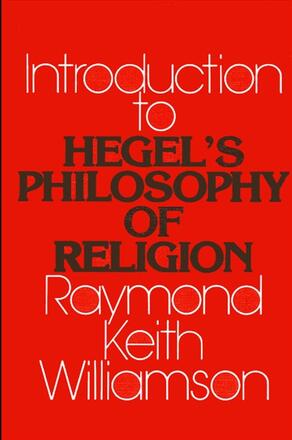Acknowledgments
List of Abbreviations
Introduction
Part I
Hegel's Early Writings: The Importance of Religion in the Life of the People
Introduction to Part I
1. The Tubingen Period: The Concept of Volksreligion
2. The Bern Period: A Rational Foundation in Kantian Terms for a Christian Volksreligion, and the Concept of Positivity
"The Life of Jesus"
The Concept of Positivity
Preparation for a Significant Development
3. The Frankfurt Period: The Concepts of Love, Life and Spirit
On Love
"The Spirit of Christianity and Its Fate"
Two Fragments of 1800
4. The Jena Period: The Concepts of the Dialectic and Geist, and the Superseding of Religion by Philosophy
The Concept of the Dialectic
The Concept of Geist
The Superseding of Religion by Philosophy
Part II
Hegel's 'Religious' Philosophy: The unfolding of Religion as Philosophy's Quest for 'Eternal Truth'
Introduction to Part II
5. The Structure of Phenomenology of Spirit
The Evolution of the Human Spirit in Individual Consciousness
The Evolution of the Human Spirit in Social Consciousness
The Evolution of Religious Consciousness: Consciousness as Self-knowing Geist
6. The Role of Religion in Hegel's Philosophy
Religion in General
7. Religion of Nature
Consciousness: From Confidences to Dilemma
The Dialectic of the Religion of Nature
8. Religion in the Form of Art
Self-consciousness: The Discovery of Self
The Dialectic of Religion in the Form of Art
A Transition
9. Absolute Manifest Religion
Reason: The Discovery of the Universal
The Dialectic of Manifest Religion
Manifest (offenbare) Religion in Actuality: Revealed (geoffenbarte) Religion
The Hegelian Answer: The Truth of Manifest (Offenbare) Religion is expressed in Philosophy
Part III
Ambiguity of Hegel's God: A Systematic Investigation
Introduction to Part III
10. Two Contradictory Interpretations of Hegel: Theism and Atheism
Hegel as a Theist
Hegel as an Atheist
11. A Contrary View: Hegel as a Pantheist
The Meaning of Pantheism
Interpetations of Hegel as Pantheistic
Hegel and Spinoza
12. A Medical View: Hegel as a Panentheist
The Meaning of Panentheism
Evidence of Hegel as Panentheist
Opinions for Hegel as Panentheist
A Discussion of Questions Relating to Hegel as Panentheist
Concluding Remarks
Bibliography
Notes
Indexes
